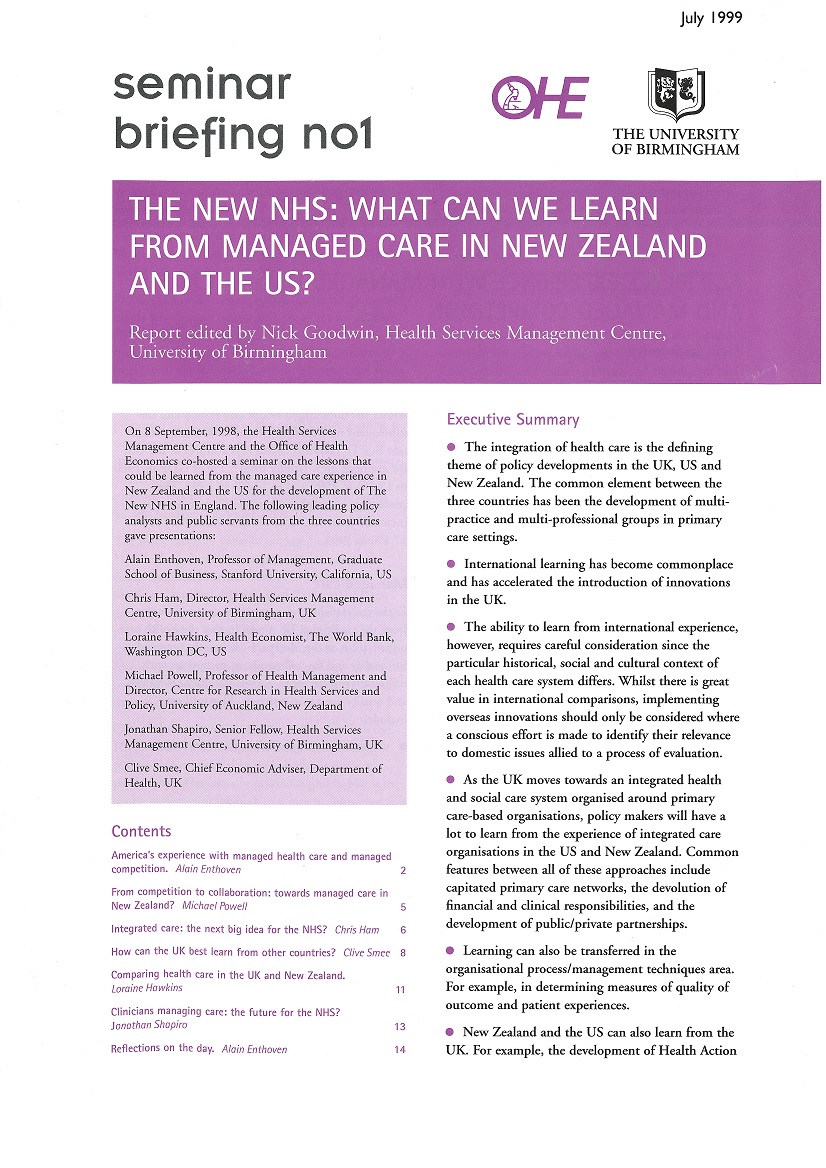• The integration of health care is the defining theme of policy developments in the UK, US and New Zealand. The common element between the three…
• The integration of health care is the defining theme of policy developments in the UK, US and New Zealand. The common element between the three countries has been the development of multipractice and multi-professional groups in primary care settings.
• International learning…
• The integration of health care is the defining theme of policy developments in the UK, US and New Zealand. The common element between the three countries has been the development of multipractice and multi-professional groups in primary care settings.
• International learning has become commonplace and has accelerated the introduction of innovations in the UK.
• The ability to learn from international experience, however, requires careful consideration since the particular historical, social and cultural context of each health care system differs. Whilst there is great value in international comparisons, implementing overseas innovations should only be considered where a conscious effort is made to identify their relevance to domestic issues allied to a process of evaluation.
• As the U K moves towards an integrated health and social care system organised around primary care-based organisations, policy makers will have a lot to learn from the experience of integrated care organisations in the US and New Zealand. Common features between all of these approaches include capitated primary care networks, the devolution of financial and clinical responsibilities, and the development of public/private partnerships.
• Learning can also be transferred in the organisational process/management techniques area. For example, in determining measures of quality of outcome and patient experiences.
• New Zealand and the US can also learn from the UK. For example, the development of Health Action Zones and long-term service agreements relates closely to the New Zealand experimentation with integrated care pilots.
• In conclusion, different countries need to develop flexible health care systems with the ability to adapt to changes in medical technology and economic and social conditions. Learning from international experience, through the sharing of information on areas such as best clinical and management practice, is important in this process.
